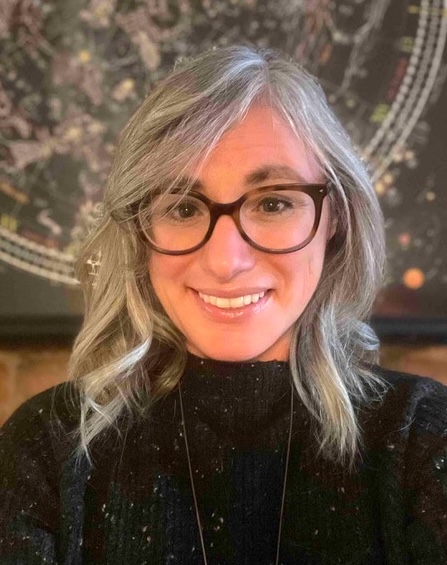AAS Names Rachel Bezanson as Fred Kavli Plenary Lecturer for 244th Meeting
With support from the Kavli Foundation, the Vice Presidents of the American Astronomical Society (AAS) name a special invited lecturer to kick off each semiannual AAS meeting with a presentation on recent research of great importance. At the 244th AAS meeting in Madison, Wisconsin, on 10 June 2024, the Fred Kavli Plenary Lecture will be given by Dr. Rachel Bezanson, an astronomer at the University of Pittsburgh and Co-Principal Investigator of the UNCOVER JWST project.

The launch of the James Webb Space Telescope (JWST) has opened the door to a spectacular range of observations that were previously out of reach. Among the many science objectives for this powerful observatory, scientists hope to search for some of the earliest galaxies in our universe and to learn more about when and how the neutral atoms in the intergalactic medium became reionized. Bezanson and the UNCOVER Project Team addressed both of these goals by undertaking dozens of hours of deep imaging and spectroscopy of a single location in the sky.
UNCOVER — which stands for Ultradeep NIRSpec and NIRCam Observations before the Epoch of Reionization — is a Cycle 1 JWST Treasury program to conduct ultradeep imaging of and around Abell 2744, a massive group of galaxies also known as "Pandora's Cluster." The large mass of this cluster causes it to act as a powerful magnifying glass, bending the light from faraway background galaxies. Lengthy dedicated imaging of this gravitational lens and deep spectroscopy of JWST-identified sources enabled the UNCOVER Project Team to identify and characterize distant galaxies from some of the earliest stages of our universe.
Bezanson and the UNCOVER JWST Project Team are being honored "for the remarkable diversity of ground-breaking science that has resulted from their deep imaging and spectroscopic survey of Pandora's Cluster with JWST, including the discovery and spectral characterization of galaxies at redshifts of z > 10, detection of the earliest supermassive black holes and active galactic nuclei, and analysis of tens of thousands of galaxies spanning nearly all of cosmic time."
Rachel Bezanson is an observational astronomer who uses a variety of ground- and space-based telescopes to study the lives of massive galaxies through cosmic time. She earned her PhD in astronomy at Yale University and was a Hubble Fellow at Steward Observatory in Arizona and a Russell Fellow at Princeton University. Bezanson joined the faculty at the University of Pittsburgh in 2017. She is a Cottrell Scholar and recipient of a National Science Foundation CAREER award.
The AAS is delighted to honor Dr. Rachel Bezanson and the JWST UNCOVER Project Team with the June 2024 Fred Kavli Plenary Lectureship.
Contacts
Image:
https://aas.org/sites/default/files/inline-images/RachelBezanson.jpeg
Astronomer Rachel Bezanson of University of Pittsburgh will give the Fred Kavli Plenary Lecture opening the 244th meeting of the American Astronomical Society in Madison, Wisconsin, on 10 June 2024. Photo provided by Rachel Bezanson.
The Kavli Foundation, established in December 2000 by Fred Kavli, a California business leader and philanthropist, is dedicated to advancing science for the benefit of humanity, promoting public understanding of scientific research, and supporting scientists and their work. The foundation’s mission is implemented through an international program of research institutes, professorships, symposia, and other initiatives in the fields of astrophysics, nanoscience, neuroscience, and theoretical physics.
The American Astronomical Society (AAS), established in 1899, is a major international organization of professional astronomers, astronomy educators, and amateur astronomers. Its membership of approximately 8,000 also includes physicists, geologists, engineers, and others whose interests lie within the broad spectrum of subjects now comprising the astronomical sciences. The mission of the AAS is to enhance and share humanity’s scientific understanding of the universe as a diverse and inclusive astronomical community, which it achieves through publishing, meetings, science advocacy, education and outreach, and training and professional development.


